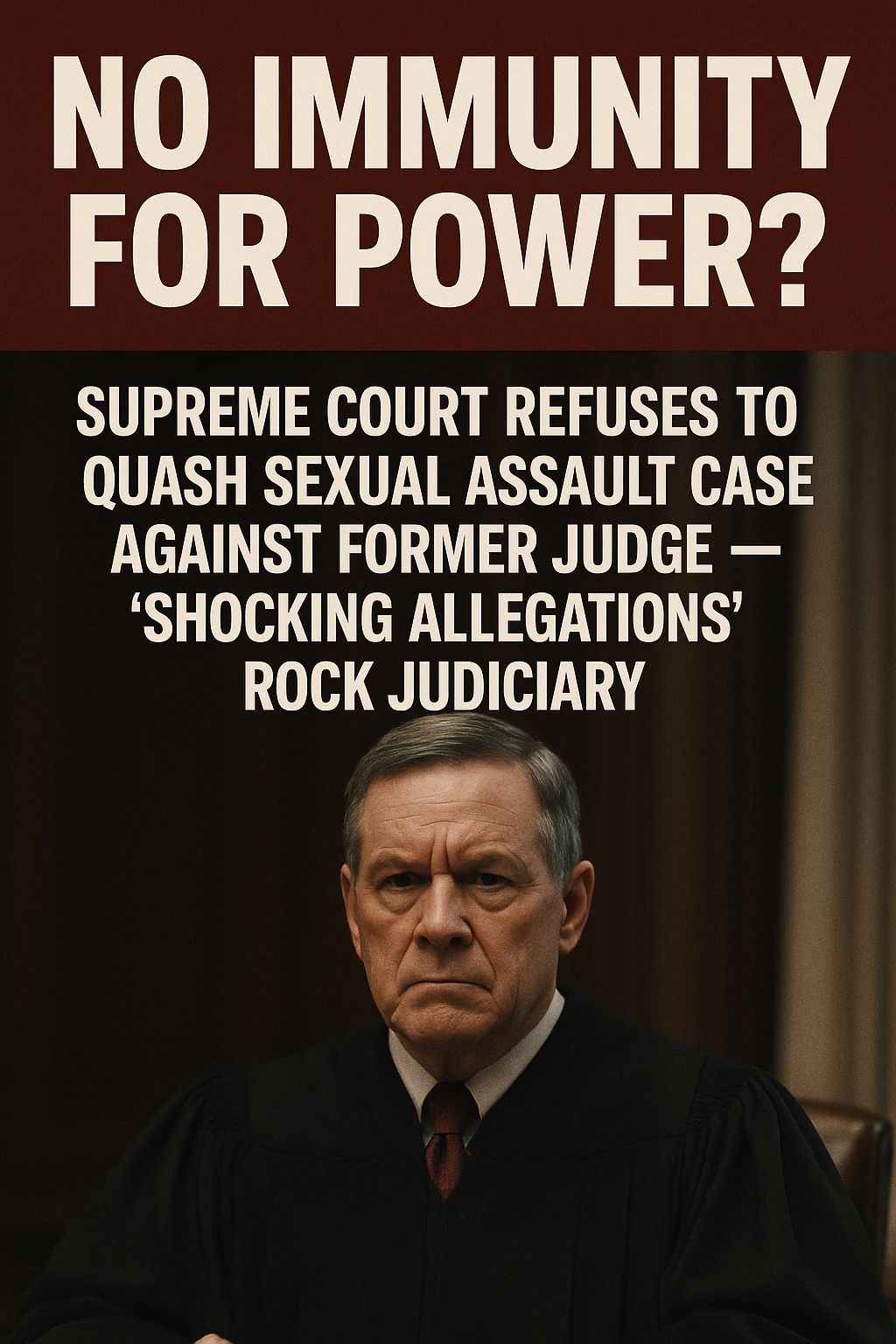In a case filed against former High Court judge the Supreme Court of India has refused to stay on the legal decision passed which set it as landmark development . This ruling made judicial accountability a pivotal moment which is beyond approach.
The Allegations
The case stems from a complaint lodged by a former court employee who accused the retired judge of sexual misconduct during her tenure. According to the complainant, the alleged incidents occurred within the judge’s official chambers and residences, pointing to a disturbing abuse of power. The allegations include inappropriate physical touch and coercion under the name of professional mentorship.
While the identity of the former judge and the complainant is being held under privacy protections. The case has again started the discussions about sexual harassment in workplaces especially in judiciary.
Supreme Court’s Observations
The Supreme Court bench which is headed by Justice Hima Kohli and Justice Rajesh Bindal, stated that charges were very serious which could be used to issue a warrant for fair proceedings even they refused to interfere with the criminal proceedings
The bench noted:
“The allegations, on the face of it, are grave and cannot be brushed aside without due process. Quashing such a case at the threshold would amount to stifling the voice of a victim.”
This firm stance by the apex court is being hailed as a crucial assertion that positions of power should not become shields against legal scrutiny.
Legal Battle and Defense
The former judge had approached the Supreme Court through legal counsel to dismiss the FIR lodged arguing the complainant had made the move to tarnish his reputation. The defense raised concerns regarding the procedure such as delay in filing complaints and lack of evidence.
However, the Supreme Court held that contentions should be held at the stage of trial rather than on stage of investigation . It stated that a prima facie shall be considered sufficient when about a serious offence .
Broader Implications
This case could set a precedent that law is same for all whether it is for public or judicial officers . Historically the legal system has suffered from accountability regarding sitting judges or retired .
Legal experts argue that this judgment reinforces the principle that no one is above the law. “It sends a strong message that the judiciary is willing to introspect and uphold the dignity of the rule of law even within its own ranks,” said Senior Advocate Meenakshi Arora.
Conclusion
The Supreme Court’s decision make it a significant moment for judicial transparency rights of victims . By allowing the case to proceed, the Court has reaffirmed that power does not grant immunity .
About the author
Chetna is a 3rd-year BBA LLB student at Maharishi Markandeshwar University, Mullana. With a passion for law, policy, and current affairs, she actively engages in research and writing on legal developments shaping society. Chetna aims to bridge the gap between legal discourse and public understanding through clear and concise analysis.

